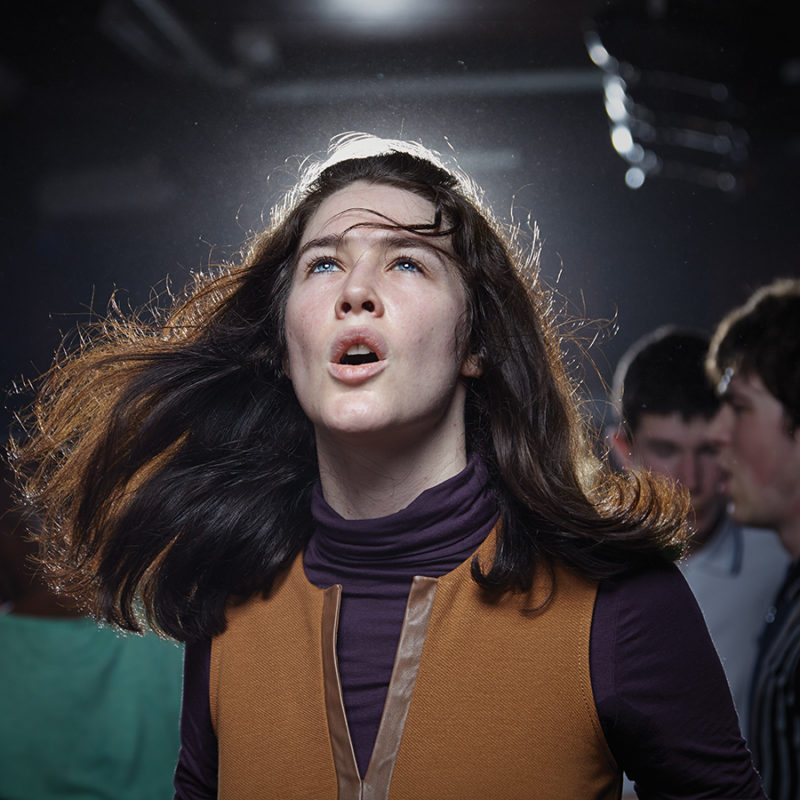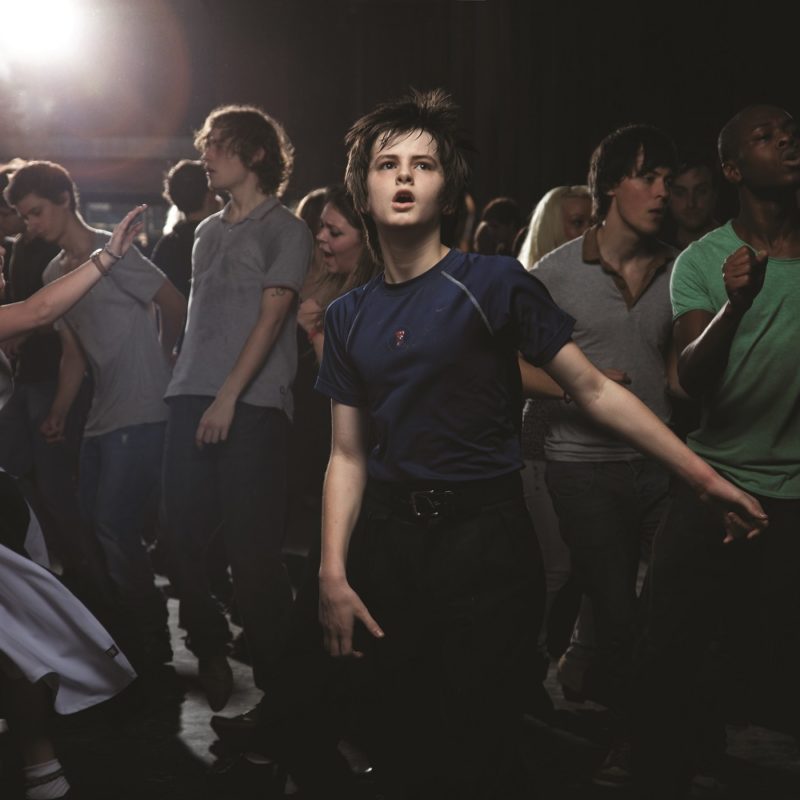Elaine Constantine. Northern Soul Dance Session
The Northern Soul scene grew out of the Mod scene in the late 1960s, with its heartlands in the working-class communities of the Midlands and North West of England. The music was predominantly that of imported Afro-American soul artists, who emulated the sounds of successful labels such as Chess in Chicago, Stax in Memphis, or Tamla Motown in Detroit. 1970s dress codes evolved from the skinny silhouette of the Mods to something looser—wide Oxford bag trousers and full circle skirts—as dance styles became more acrobatic. The Northern Soul movement’s early motto was “Keep the Faith”, which exemplified the passion and enthusiasm of the dancers and record collectors it attracted. Today the Northern Soul scene has evolved into an international “rare soul” scene that continues to feed off the discovery of previously unknown or un-played soul records from the ‘60s, ‘70s and even ‘80s, while paying homage to its own classics.
This series was shot for The New York Times in 2012. The images were taken at the iconic 100 Club in London, the venue that still hosts the world’s longest running rare soul all-nighter – an all-night dance event of Northern Soul music—once a month on a Saturday. The photographs feature young actors and soul fans who collaborated with Elaine on her debut feature film, Northern Soul (2014), many of whom had been attending dance sessions for years prior to appearing in the film.
Elaine Constantine was born in 1965 in Bury near Manchester. In 1992, having completed photography studies, she moved to London to get involved in fashion and commercial photography. Her commissions included “i-D” and the Italian and American “Vogue”. Elaine was awarded a prize at the 1998 John Kobal Foundation Portrait Awards and in 2006 she won the Royal Photographic Society’s Terence Donovan Achievement Award. She is also an author of films – a 9 Kisses series showing intimate profiles of Hollywood celebrities, as well as a full length Northern Soul, which was nominated for BAFTA (best debut).





